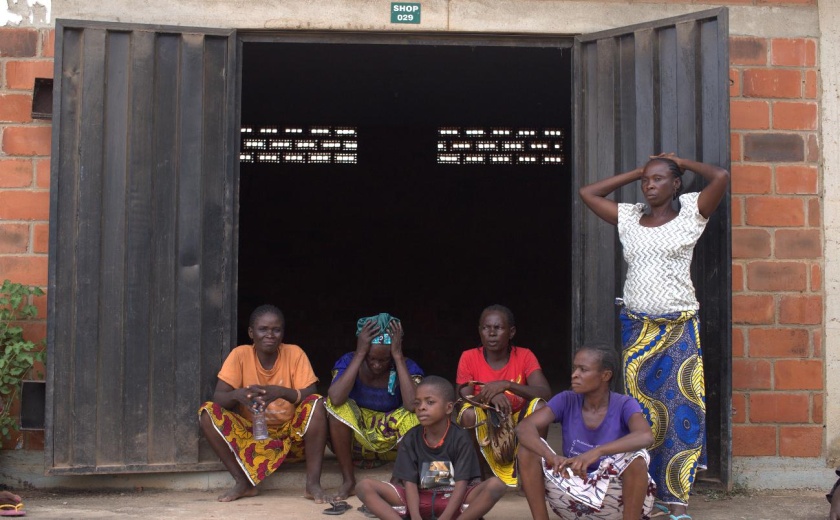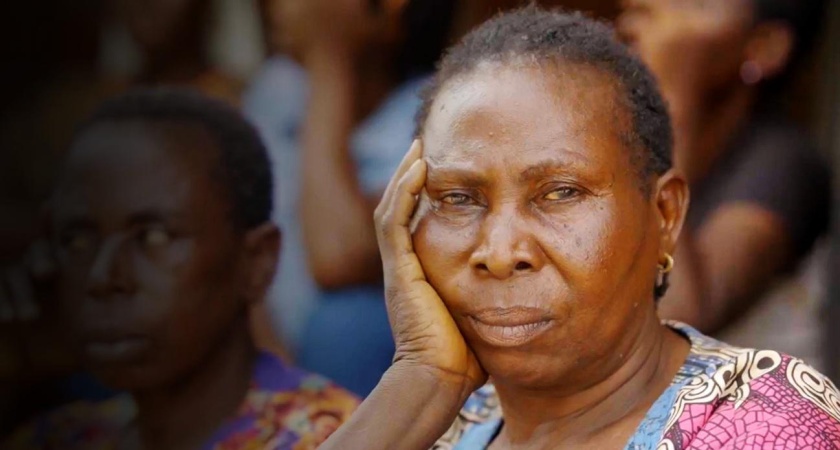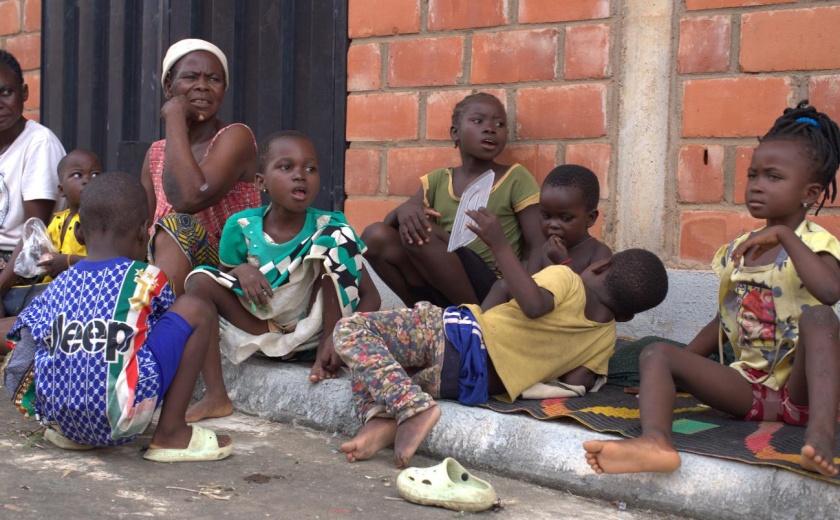News about what is happening to Christians in Nigeria has gone viral. What is the truth? What can you do about it?
![Christians in Nigeria. Photo: [link]Open Doors international[/link]](https://cms.evangelicalfocus.com/upload/imagenes/690b382ef0921_nigpuerCropped.jpg) Christians in Nigeria. Photo: [link]Open Doors international[/link]
Christians in Nigeria. Photo: [link]Open Doors international[/link]
It seems that some parts of the global community are beginning to realise what is happening to Christians in Nigeria.
Videos, articles and statistics about violent attacks on followers of Jesus in this African country have gone viral. Governments have taken note.
Nigerian authorities have responded. There has also been the usual exchange of views on social media and websites around the world.
However, amid all the noise and misinformation, there is the truth. The truth is that Nigeria is currently the most violent place in the world for Christians: over 3,000 were killed for their faith last year, and the country ranks seventh on the 2025 World Watch List.
It can be difficult to face this fact when social media posts and comments are reduced to headlines and quick reactions. That is why we must be clear about what is happening in Nigeria and help others understand how they can further break the silence surrounding this reality.
Here are 10 things you should know about what is really happening in Nigeria.
All Evangelical Focus news published, on your WhatsApp.
Several militant Islamist groups have gained a stronghold in Nigeria, especially in the predominantly Muslim north.
These include Boko Haram and the Islamic State West Africa Province (ISWAP). ISWAP is tied to the same extremist groups and ideologies that occupied parts of Syria and Iraq a decade ago.
Both Boko Haram and ISWAP aim to create an Islamic state in which only their extreme interpretation of Islam is permitted.
In recent years, other lesser-known Islamist militant groups have also begun to operate, advancing into new areas including the south of the country.
Furthermore, radicalised and armed members of the Fulani ethnic group have spread terror in Nigeria's central belt, a region mainly made up of Christian communities.
The violence is overwhelming: Fulani extremists were responsible for 55% of recorded Christian deaths between 2019 and 2023.
All these groups have unleashed waves of violence across the region, with thousands killed and millions expelled from their homes. Many of them are surviving in terrible conditions in camps for internally displaced persons, unable to return home.

[photo_footer] Photo: Open Doors International.[/photo_footer]
This level of violence is not the same throughout Nigeria. Most attacks take place in the north of the country.
Many Christians living in the south, especially in places like Lagos —the most populous city in sub-Saharan Africa— do not face daily violence because of their faith in Jesus.
However, the violence has increasingly begun to spread to some southern states with Christian majorities.
There are multiple factors at play in Nigeria. One of them is power and control: all extremist groups seek to dominate the territory and those who live there.
Poverty is another factor: those who have nothing are more vulnerable to radicalisation by Islamist groups.
For the Fulani people, who are mostly nomadic herdsmen, the shortage of resources caused by climate change is a real issue, as it has forced many to move south in search of fertile land for their livestock. Furthermore, most of the agricultural land belongs to Christians.
However, some Fulani have radicalised, adopting a violent Islamist ideology that justifies the subjugation of Christians as infidels.This creates an environment in which religion is a key element of violence.
This is a highly controversial claim, especially when it comes to the Nigerian government. However, the statistics show a clear pattern.
Boko Haram and ISWAP have explicitly and repeatedly stated that Christians are their target. Many victims have told us that, when Fulani militants attack, they shout not only Allahu Akbar (God is great), but also, 'We will destroy all Christians'.
According to the Observatory for Religious Freedom in Africa, which meticulously collects data on violence and civilian deaths in the region, the trend is clear: extremists kill more Christians than Muslims taking into account the relative proportions of the population in the northern states.
If you are Christian, you are 6.5 times more likely to be killed than a Muslim, and 5.1 times more likely to be kidnapped. This does not diminish the suffering of Muslims; it simply makes it less likely.
Furthermore, there is a serious lawlessness problem in northern Nigeria. Kidnapping has become a highly lucrative business that funds Islamist expansion and is tied to active terrorist groups. Over 20,000 people were kidnapped between 2019 and 2023.
Many of these bandits attack anyone who can pay a ransom, but they have learned that they can get higher ransoms for Christians, especially Christian religious leaders. This makes them particularly vulnerable targets.

[photo_footer] Photo: Open Doors International[/photo_footer]
Radical Islamist violence is spreading across many countries in sub-Saharan Africa.
Islamist militants and radicalised criminal gangs are taking advantage of existing conflicts, insecurity and poverty in countries such as Sudan and Eritrea in the east; Niger and Burkina Faso in the west; the Democratic Republic of the Congo in Central Africa; and Mozambique further south.
Again, there are many different factors and motivations at play. However, there is one common thread: extremist Islamist ideologies that seek to control entire African regions and persecute Christians and anyone who does not share their beliefs.
Nigeria is the epicentre of this violence, and if it is not contained there, the consequences for the rest of the continent will be devastating.
It is crucial to give a voice to those closest to the violence rather than simply discussing statistics from afar.
Survivors tell us about the brutality of Boko Haram and ISWAP, who have publicly and repeatedly declared they will rid the country of Christians and 'infidels'.
Many survivors tell us that, during their abductions, their captors say things like, “If you were Muslim, they wouldn't torture you like this”, and that their suffering would end “if they simply declared themselves Muslim”.
Since news of the violence spread, there has been much debate about whether what is happening to Christians can be considered 'genocide'. The word carries a lot of emotional weight.
According to international law, specific requirements must be met; killing many people is not enough, there must also be evidence of intent to destroy, in whole or in part, a national, ethnic, racial or religious group.
The term 'genocide' has a very high threshold because its use obliges governments to act. Therefore, focusing on the terminological debate can distract from the essential point: the urgent need to act.
Boko Haram, ISWAP and Fulani militants have clearly committed international crimes, which may be considered genocide, ethnic-religious cleansing or crimes against humanity.
Governments and international organisations, such as the United Nations, must investigate these crimes thoroughly and provide urgently needed assistance.
Millions of people are displaced right now. Thousands are being killed. We must break the silence and bring healing now, without waiting for terms to be agreed.

[photo_footer] Photo: Open Doors International[/photo_footer]
It is unlikely that the media has deliberately ignored the violence. In fact, the issue of persecution against Nigerian Christians is beginning to be covered by the mainstream press, although it has been featured more frequently in Christian media outlets.
However, many secular journalists have unquestioningly accepted the Nigerian government's claims that the violence is not religion-based.
For instance, they describe attacks by Fulani militants as 'clashes' between farmers and herders when, in fact, they are planned, armed attacks on defenceless Christian communities.
While the government has arrested and prosecuted some members of Boko Haram and ISWAP, it has not shown the same determination with Fulani militants.
People on the ground do not believe that anyone will be held accountable for these crimes. They have seen hundreds of suspects arrested over the years, only to be released without charge or trial.
The right to life, as guaranteed by section 33 of the 1999 Nigerian Constitution, becomes meaningless if the state does not decisively punish those who violate it.
A prevailing culture of impunity will only lead to more bloodshed and further erode the population's trust in the rule of law.
It's time to break the silence about the killings in Nigeria. Join the Arise Africa campaign by Open Doors and sign the petition calling for security, justice and restauration.
Add your voice to the petition and urge the international community to step in, take action, and promote restoration.
Pray for Nigeria and its government. Also pray for your brothers and sisters in sub-Saharan Africa who risk so much simply for following Jesus.
[analysis]
[title]Join us to make EF sustainable[/title]
[photo][/photo]
[text]At Evangelical Focus, we have a sustainability challenge ahead. We invite you to join those across Europe and beyond who are committed with our mission. Together, we will ensure the continuity of Evangelical Focus and our Spanish partner Protestante Digital in 2025.
Learn all about our #TogetherInThisMission initiative here (English).
[/text][/analysis]

Las opiniones vertidas por nuestros colaboradores se realizan a nivel personal, pudiendo coincidir o no con la postura de la dirección de Protestante Digital.
Si quieres comentar o